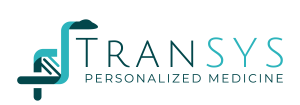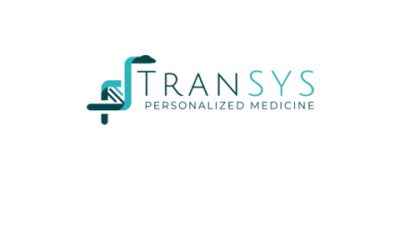TranSYS research is organized around 3 main Work Packages.
WP1: Preclinical Science and Molecular Medicine: advance new and improved approaches for the detection, diagnosis, prevention and treatment of a diverse range of chronic complex diseases. ESR projects link experimental work for different diseases areas with in silico and multiscale modelling to maximize health benefits of clinical science discoveries and molecular insights by establishing the right environment and conditions for researchers in discovery science, molecular diagnostics, analytics development, and translational research, to interact effectively.
WP2 Systems Analytics: use state-of-the-art data analytics to advance PM and patient stratification strategies, building on preclinical and clinical research (WP1). ESRs will advance sophisticated models designed to tackle biological complexity to describe complex health-related phenomena, from the cellular level to a multi-systems level, from whole populations of individuals to a single individual, spanning mathematical and geometric modelling, statistical modelling and Artificial Intelligence (AI) including Machine and Deep Learning.
WP3: Translational Medicine for Targeted Therapeutics: define signatures of larger groups of patients to create a critical mass for treatment strategies to become economically viable. This requires advances on interpretable Big Data science, and the exploitation of large cohorts to derive benchmark signatures (building on WP1-2 and clinical trials design and analysis included in TranSYS training).
ESR 1 – KU Leuven, Belgium
Development of individual-specific molecular networks Host: KU LEUVEN (Leuven University) (BELGIUM) PhD awarding institution: KU LEUVEN (Leuven University) Lead Supervisor: K Van Steen Objectives: Describing a system implies describing its behavior and important control mechanisms that regulate this behavior. Crucial in this process are interactions, which may occur at different levels or scales, and thus network theory and network visualization are increasingly being used to understand...
ESR 2 – KU Leuven, Belgium
Hunting for patient subtypes through image-based phenotypes as biomarkers for major gene effects in medical disorders Host: KU LEUVEN (Leuven University) (BELGIUM) PhD awarding institution: KU LEUVEN (Leuven University) Lead Supervisor: K Van Steen Objectives: To develop a framework for gene-centric image data integration analytics and support a patient stratification strategy that identifies major gene effects with potential applications in a variety of medical disorders. This expands our...
ESR 3 – ERASMUS University, The Netherlands
GDPR regulation in translational medicine Host: ERASMUS UNIVERSITAIR MEDISCH CENTRUM ROTTERDAM (The Netherlands) PhD awarding institution: ERASMUS UNIVERSITY ROTTERDAM Lead Supervisor: P van der Spek Objectives: First results on integrated omics profiling of melanoma patients, in particular primary and metastasized skin cancer patients, are promising and seem to generate interesting biomarkers with therapeutic potential. The main aim of this project is to develop a patient stratification...
ESR 4 – KU Leuven, Belgium
Developing a precision medicine ethics, between personal empowerment and collective responsibility Host: KU LEUVEN (Leuven University) (BELGIUM) PhD awarding institution: KU LEUVEN (Leuven University) Lead Supervisor: K Dierickx Objectives: Proponents offer four ways in which their approach to medical diagnosis and health care improves upon current practices, arguing that it is more ‘personalised’, ‘predictive’, ‘preventive’ and ‘participatory’ than the medical status quo. This evolution in...
ESR 5 – University of Ljubljana
Personalized molecular signatures for modulating progression of metabolic liver disease (NAFLD) to hepatocellular carcinoma Host: UNIVERZA V LJUBLANI (Slovenia) PhD awarding institution: UNIVERZA V LJUBLANI (Slovenia) Lead Supervisor: D Rozman Objectives: NAFLD currently suffers from the absence of treatment strategies which led to dramatic rise of liver cancer (HCC). Without treatment, HCC is fatal, with a 5-year survival of only five percent. To bridge this gap, the ESR 5 project will: 1)...
ESR 6 – UNIVERSITE DU LUXEMBOURG, Luxembourg
Dissecting cellular heterogeneity of Parkinson’s disease (PD) related iPS cells during aging by integrated single cell transcriptomics and imaging analysis to identify disease modifiers Host: UNIVERSITE DU LUXEMBOURG, Luxembourg PhD awarding institution: UNIVERSITE DU LUXEMBOURG, Luxembourg Lead Supervisor: A Skupin Objectives: Recently established patient derived iPS cell approaches typically neglect the effect of aging by working with freshly differentiated cells. The proposed project will...
ESR 7 – CNIO, Spain
Personalized approaches to modulate tumor behavior using vitamin D3 Host: FUNDACION CENTRO NACIONAL DE INVESTIGACIONES ONCOLOGICAS CARLOS III (Spain) PhD awarding institution: UNI Madrid (Spain) Lead Supervisor: F Real Objectives: 1) to establish a biobank of blood and tumor samples from patients prior to and after administration of vitamin D; 2) to assess the effects of vitamin D administration on expression of tumor-relevant proteins and to validate the pharmacological effects by assessing...
ESR 8 – INSTITUT PASTEUR, France
Integrative modelling of autoimmune diseases Host: INSTITUT PASTEUR, France PhD awarding institution: UMPC-SORBONNE UNIVERSITÉS Lead Supervisor: B Schwikowski Objectives: To develop dimensionality reduction (DR) techniques that project large publicly available autoimmune-related transcriptomes and associated clinical data (i.e., from Lupus, Rheumatoid Arthritis) into a common low-dimensional space (the “AutoImmune Map (AImap)”). The structure of the low-dimensional space will be informed by...
ESR 9 – BARCELONA SUPERCOMPUTING CENTER, Spain
Patient-centric data integration framework for highly dimensional data Host: BARCELONA SUPERCOMPUTING CENTER (Spain) PhD awarding institution: UNIVERSITAT DE BARCELONA Lead Supervisor: N Pržulj Objectives: PM proposes to individualize the practice of medicine based on patients’ genetic backgrounds, their biomarker characteristics and other omics datasets including exposure. ESR9 will build upon our previous work on network science, data integration and PM to propose a patient-centric data...
ESR 10 – KU Leuven Belgium
Development of Clinical Blockchain Network Host: KU Leuven(UK) PhD awarding institution: KU LEUVEN (Leuven University) Lead Supervisor: K Van Steen Objectives: This project will look into clinical aspects of using genome data linked to clinical decision making processes such as SnoMed and HL7, and build ways for third parties to control and own their data and allow access to it using a Token system. The steps involved include: (1) developing the project protocol and documentation along with...
ESR 11 – MPI, Germany
Identification of biological subtypes related to treatment resistant depression Host: MPI, Germany PhD awarding institution: LUDWIGMAXIMILIANSUNIVERSITAET MUENCHEN Lead Supervisor: Philippe Saemans Objectives: Depression is among the top disorders associated with years lost to disability, treatment options are not guided by underlying pathobiology but mainly based on trial and error, leading to long lag-times of treatment response in over 2/3 of the patients and the development of treatment...
ESR 12 – UNIVERSITAIR MEDISCH CENTRUM GRONINGEN (The Netherlands)
Multi-omics analysis to delineate drugresponse pathways Host: UNIVERSITAIR MEDISCH CENTRUM GRONINGEN (The Netherlands) PhD awarding institution: UNIVERSITAIR MEDISCH CENTRUM GRONINGEN (The Netherlands) Lead Supervisor: C Wijmenga Objectives: Response to drugs is highly heterogeneous. On average medication works in only 25% of cases, and efficacy varies between patients. ESR 12 will develop stratification rules for individuals, based on genetics. For this to be effective, deep understanding of...
ESR 13 – MAX-PLANCKGESELLSCHAFT ZUR FORDERUNG DER WISSENSCHAFTEN EV, Germany
Understanding stress-responsive molecular networks Host: MAX-PLANCKGESELLSCHAFT ZUR FORDERUNG DER WISSENSCHAFTEN EV, Germany PhD awarding institution: LUDWIGMAXIMILIANSUNIVERSITAET MUENCHEN Lead Supervisor: E Binder Objectives: Exposure to stressful life events is one of the strongest risk factors for psychiatric disorders, but also contributes risk for a number of medical disorders. These stressful events are difficult to measure objectively. To nevertheless investigate how genetic variants...
ESR 14 – THE GOLDEN HELIX FOUNDATION, United Kingdom
Standardization of disease and population-specific genotyping panel for preemptive pharmacogenomics: Towards population pharmacogenomics Host: THE GOLDEN HELIX FOUNDATION, United Kingdom PhD awarding institution: UNIVERSITY OF PATRAS (Greece) Lead Supervisor: G Patrinos Objectives: This project will develop and standardize disease and population-specific genotyping panels for preemptive pharmacogenomics. We will expand on our previous work, consisting of (a) the first pan-European study on...
ESR 15 – LIFEGLIMMER GMBH, Germany
Developing and demonstrating data mining and A.I. tools to betterunderstand patient heterogeneityand assist patient stratification Host: LIFEGLIMMER GMBH, Germany PhD awarding institution: University of Ljubljana Lead Supervisor: V Martins dos Santos Objectives: Instead of creating new data, it is often easier, more cost-effective and in many cases even more productive to make use of the data that is already present and that just waits to be collected, harmonized and analyzed from a different...


